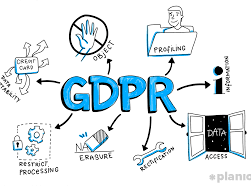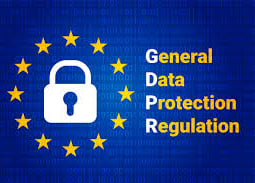Introduction
GDPR isn't just another checkbox in your compliance list—it's a comprehensive approach to protecting personal data. For organizations that handle EU citizens' information, this regulation demands high security standards. But don’t worry—staying compliant doesn’t have to be overwhelming, especially if you’ve got the right processes and tools in place.
Abstract
Overview
GDPR outlines strict guidelines for data processing, storage, and transfer. From obtaining consent to ensuring transparency in data handling, your organization needs to adopt best practices in safeguarding sensitive information. Compliance isn’t optional—it’s essential to avoid fines and protect your reputation.
Handling data from European Union (EU) citizens? Then you’ve probably encountered the General Data Protection Regulation (GDPR). This regulation ensures that personal data is handled with the utmost care, promoting privacy and security. In this blog, we'll dive into what you need to know to stay compliant with GDPR, avoid costly penalties, and keep your systems secure.


[Disclaimer: This blog post is for informational purposes only and should not be construed as legal or financial advice. Organizations should consult with legal counsel and regulatory authorities to ensure compliance with reporting requirements.]
Mandatory
Complying with GDPR is a legal requirement for any business that processes EU residents' data. The regulation sets out clear expectations, and non-compliance can result in significant penalties—up to 4% of global turnover!
Applicability
GDPR applies to all industries dealing with personal data. Whether you’re in e-commerce, healthcare, finance, or tech, the regulation impacts how you manage and protect your customers' privacy.
Regulatory or Company Interest?
The EU mandates GDPR for data protection, but companies should embrace it to build trust with customers, avoid fines, and create stronger security frameworks.
Key Guidelines
Conduct regular audits to ensure GDPR compliance.
Implement strong encryption and access controls.
Provide transparency and obtain explicit consent from users.


Key Implications
Failing to comply with GDPR can result in heavy fines, data breaches, and a loss of customer trust. On the flip side, adopting GDPR-friendly practices strengthens your cybersecurity and enhances your brand’s credibility.
Countries with Adoption or Influence
While the GDPR is specific to the EU, its influence extends globally. Many countries, including Brazil and Japan, have adopted similar data protection regulations inspired by GDPR.
International Frameworks Influenced
GDPR has shaped frameworks like the California Consumer Privacy Act (CCPA) and various other data privacy laws across the globe.
Regional and Industry-Specific Frameworks
For industries like healthcare (HIPAA) and finance (PCI-DSS), GDPR's influence has been seen in tightening data protection measures.
Secure Your Digital Identity with SecureKnots
Contact us to learn more about our cybersecurity services and ensure your organization meets cybersecurity requirements.


Conclusion
Staying compliant with GDPR is crucial for both legal and business reasons. By designing systems with privacy and security in mind, you’ll protect sensitive data and avoid costly penalties.
How SecureKnots Can Help
At SecureKnots, we offer GRC consulting, audits, and certifications that ensure your organization is fully GDPR-compliant. With our VAPT services, we test your systems to identify vulnerabilities before hackers do. Additionally, our security awareness training ensures your team is up-to-date on the best data protection practices. Let SecureKnots guide you through the maze of GDPR compliance—ensuring your business stays secure and trusted.
This blog focuses on the importance of securing employee access to internal systems while showcasing how SecureKnots can help organizations strengthen their access controls. It is informative and engaging, highlighting the significance of GDPR Let me know if you need further adjustments!
Thank you for your attention! If you have any inquiries about cybersecurity requirements or need expert guidance, please don't hesitate to contact SecureKnots.
This should wrap up the blog and fulfill the promise made in the previous one!
GDPR-Audit and compliance
If you’re handling data from European Union citizens, you’ve probably heard of the General Data Protection Regulation (GDPR). This regulation sets strict guidelines on how companies should handle personal data to ensure privacy and security. We’ll talk about how you can design your systems to stay compliant with GDPR and avoid hefty fines.
WITH OUR SHORT BLOGS
STAY UP TO DATE
Copy Rights @ 2023 SecureKnots. All Rights Reserved.
CONTACT US
Contact@Secureknots.com
USA
+1-302-601-2346
+1-302-608-6708
INDIA
080-31658865
GET IN TOUCH
